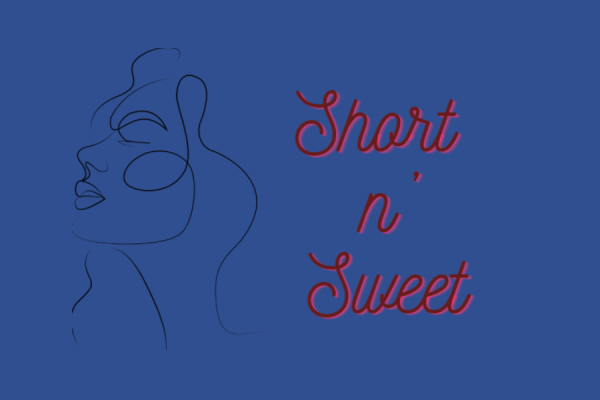‘Mulan’ Captures Powerful Feminist Angle
In the midst of a global pandemic, Walt Disney Pictures delights us with a wonderful live action adaptation of Mulan released on Sept. 4th on Disney Plus (with the purchase of premium). Though COVID-19 has delayed many films and production, the news of the release excited fans during this time.
My childhood friends and I adored the animated versions of Mulan. The action scenes gave us chills and the romantic parts between Mulan and Li-Shang complemented the powerful feminist angle. Chinese folklore within the film was well depicted in characters such as Mushu and the courageous female lead, Mulan. Overall, the movie was not only entertaining and funny, but it also delivered a heartfelt moral.
The new film’s overall plot has barely changed from the first: Mulan, a fearless young woman disguises herself as a man to battle northern invaders all to save her ailing father from serving in the Imperial Army. However, I was shocked to find out that many of the main characters in the original films including Mushu and Captain Li-Shang were not included in the adapted live action. Additionally, Mulan does not actually cut her hair nor does she have a romantic relationship with Li-Shang. The current film is not humorous and comedic like the first and instead it takes on a more serious and dramatic tone.
To begin, one of the main characteristics of a Disney animated film, including Mulan, is its unique soundtrack. The classic songs Reflection and I’ll Make a Man Out of You not only made the transitions in the film easy to follow but also provided an interactive experience that my friends and I could sing-along to. However, in the current Mulan, these songs are not integrated so that the characters sing them, instead important phrases are just spoken by characters in conversations. For example, in the old film, characters sang the melodic tune A Girl Worth Fighting For, but in the new film, certain phrases of the song were altered into a short conversation between soldiers in the training camps: “I don’t care what she looks like, I care what she cooks like.” I think the songs in the old film definitely added an interactive element and that same family-friendly feeling is no longer apparent in the musical revamping of the new film.
Another major change that is shown in the movie is who the antagonists are. Instead of the Huns taking over the Imperial City, the new film features a new group of enemies called Rourans. The name of the previous rival leader was Shan-Yu, but is now changed to Bori Khan. Xian Lang, the witch shapeshifter, was added as another female lead and I thought this was a very refreshing change from the reoccurring man versus man battle scenes which gave insight into female battles.
“The witch is operating out of villainy really against her own wishes, because there’s no place for her as a strong woman,” the film’s director, Niki Caro said. In a way, due to her change of opinions through the film, the witch “functions as a tragic heroine, in many ways,” Caro adds. “The interesting parallel is that Mulan possesses many of the same qualities as the witch,” such that being strong and independent females was not accepted in traditional society. However as the movie progresses, Mulan learns who she is and convinces the witch to be herself too.
“Daughters bring honor through marriage” is often reiterated by Mulan’s mother and society often encouraged this principle by claiming that “shame, dishonor, [and] exile” would be brought upon a woman if she joined the fighting in the war or did anything besides preparing for marriage for that matter. Despite the anti-feministic nature of society and Mulan’s parents, she was determined to “bring honor to [them] all,” and for her, saving China was her destiny, not marriage. I became hot-headed every time Mulan’s parents made comments to push her down, which is why the entire plot of her rising above those constructs made the movie so much more inspirational.
The movie revolved heavily around the concepts of the phoenix and chi. Her father tells her that “chi is warriors, not daughter” forcing Mulan to hide her abilities. Chi is the Chinese concept of “material energy” or “energy flow;” it is the force that forms every living entity. Mulan has an extraordinary chi and this is revealed throughout the movie. Instead of there being a talking sidekick dragon, Mushu, in the previous film, the new one has a phoenix as Mulan’s silent guide. This idea of needing to be yourself before you can reach your utmost power is a very interesting take implemented within this new movie and I enjoyed the development of the simile, “rise up like a phoenix,” throughout the film
Characters, such as the cuddly cricket in the previous film who is instead included as Mulan’s fellow army trainee, also have a slightly varying appearance. For one, the trio, Yao, Ling, and Chien Po are not as crucial in the new film. I loved the humoristic side of the trio as it added a light element to the film. The army trainees are still included, but rather than the trio, the most prominent one is named Honghui. In fact, he is the one who Mulan has hints of romance with, rather than Li-Shang, the army general in the previous film. I personally think that her falling in love with a fellow army trainee makes more sense. Additionally, I prefer that the romance is only slightly hinted because then it does not distract from the major topic of female power.
However, the main reason as to why all of these changes were made in the new film is to make it more authentic to the Chinese people. Mulan is based on a song called The Ballad of Mulan and it is deeply integrated into Chinese culture. So when the first animated version of Mulan came out, it became a massive flop in China because the film was much too foreign and strayed far from the original legend. In the new 2020 film, the director and cast attempted to correct that. I truly believe they accomplished and evolved it into a more authentic film.
As many have seen on social media and over the news, major controversies arose with the release of the film besides just the plot line. The lead actress, Liu Yifei, supported the Hong Kong police during the time when their brutality and corruption was exemplified in the media and civilians and Mulan film fans were outraged by this show of support. Additionally, the film’s primary filming location was Xinjiang where internment camps currently hold imprisoned Uighurs Muslims. Inhumane behavior was said to be supported by the film producers as they decided to continue filming in that location. Another reason for striking controversy was that the directors of the film were not of Asian descent which defeats the purpose of a truly authentic and traditional Chinese film. Hong Kong protestors, many activists, and civilians called for the film to be boycotted for these various reasons.
Though there have been a plethora of changes made to the film and a condemnation of the crew’s support of the controversial issues, the film itself was extremely impressive with the well-thought-out concepts and action packed scenes. The morals were not hidden, in fact, they were intensified with these new characters and storyline. I have been yearning for a pure feminist movie to come out, and Mulan has delivered just that. Though this live-action was not a replica of my childhood Mulan, I would still recommend watching and witnessing all the changes.

This is my first year on press and I'm super excited to start as a reporter! I help out with managing social media accounts and writing stories. Outside...







